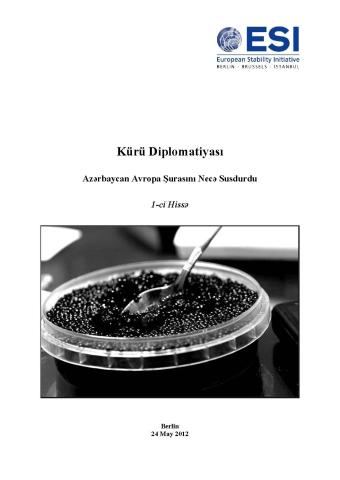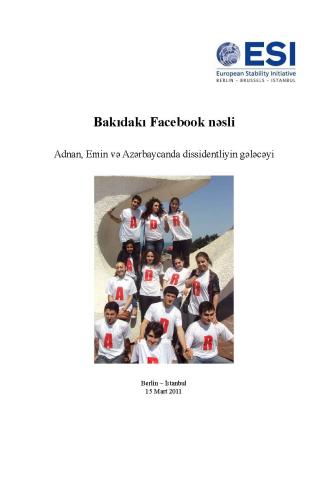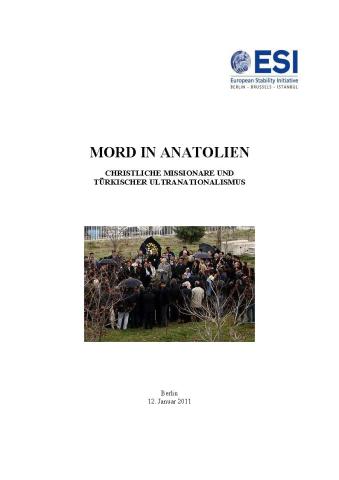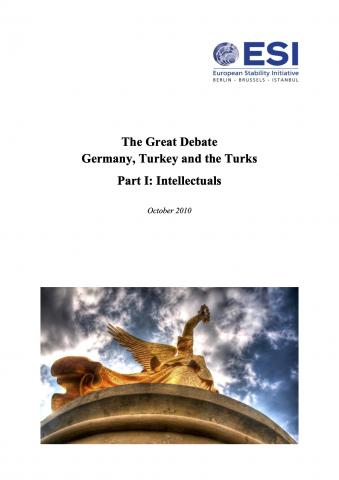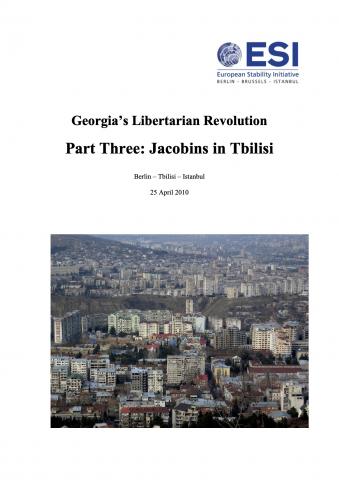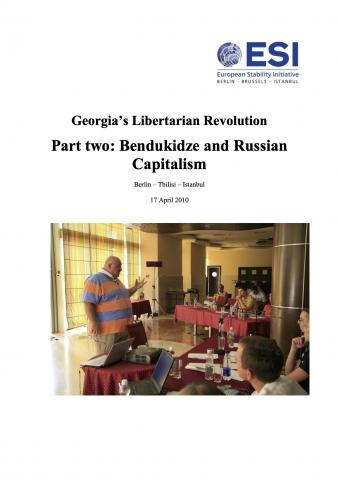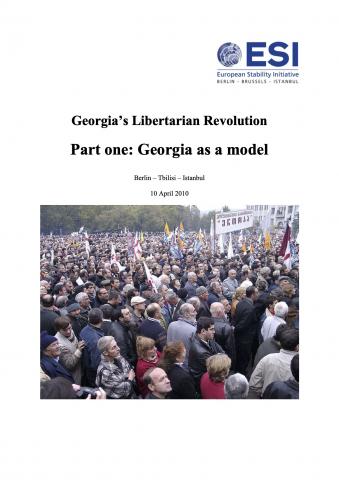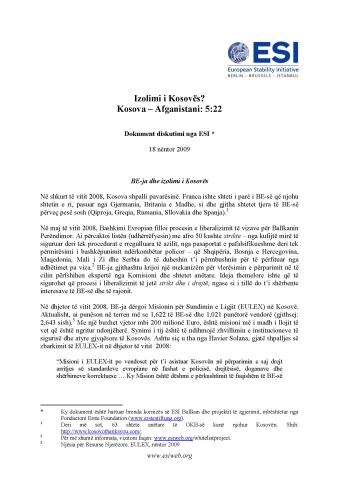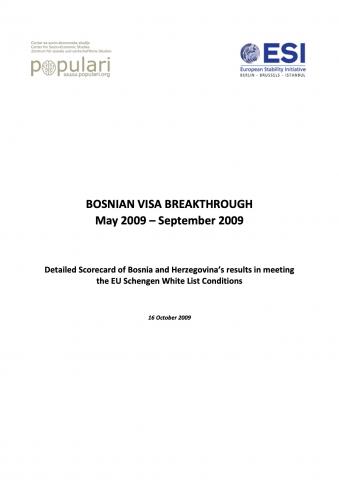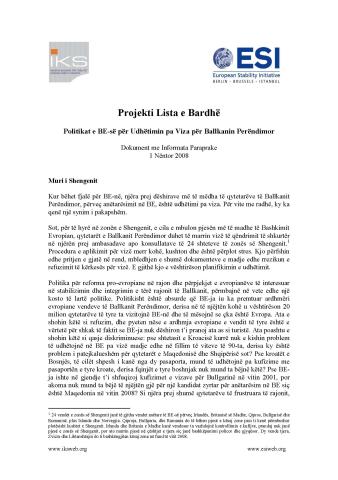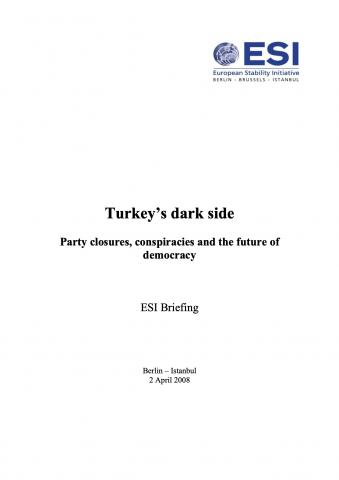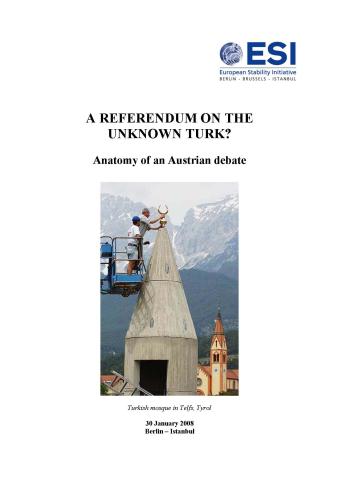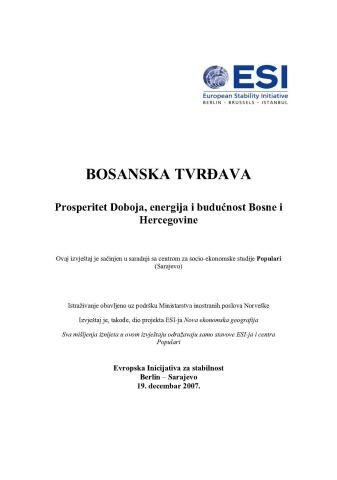Publications
155 PublicationsA Portrait of Deception - Monitoring Azerbaijan or why Pedro Agramunt should resign
There are very few members of the Parliamentary Assembly of the Council of Europe (PACE) who have been to Azerbaijan as regularly over the past decade as Pedro Agramunt. From the very beginning of his relationship with Baku he has been a defender of the Aliyev regime. It would be better if her were to resign from his position as PACE's rapporteur for Azerbaijan.
Saving visa-free travel - Visa, Asylum and the EU roadmap policy
Since the visa requirement was lifted for Western Balkan countries in 2009, there has been a sharp increase in claims for political asylum by citizens of the region. Barely any of these applicants qualify for asylum. Now, EU policymakers find themselves under increasing pressure to address the problem directly by suspending visa-free travel for Western Balkan countries. Such a draconian measure would undermine the credibility of the EU’s whole approach to visa liberalisation – not just in the Western Balkans, but also in Moldova, Kosovo, Turkey and the Ukraine.
Breaking the Macedonian deadlock before the end of 2012
What is needed is a way forward that accepts the bottom lines for Athens and Skopje. This can be achieved through a constitutional amendment in Skopje that changes the name of the country with a geographic qualifier: to replace "Former Yugoslav Republic of Macedonia" where it is currently in use, allowing Athens to support the start of EU accession talks and to send an invitation to join NATO later this year or early next year, but which foresees that the change will enter into force permanently and erga omnes on the day Macedonia actually joins the EU.
Caviar Diplomacy - How Azerbaijan silenced the Council of Europe
When Azerbaijan was admitted to the Council of Europe, despite well documented democratic failings, it was with the idea that Council of Europe membership would gradually transform Azerbaijan. Sadly, the reverse has occurred. The outcome is a tragedy for the citizens of Azerbaijan, particularly those brave pro-democracy activists who languish in jail as political prisoners. But it is also a tragedy for Europe, whose values have been trampled on.
Generation Facebook in Baku - Adnan, Emin and the Future of Dissent in Azerbaijan
For educated young Azerbaijanis the recent boom created many opportunities. Born in a communist empire that has since ceased to exist, having come of age during a tumultuous transition, they are now able to take advantage of new possibilities to study abroad and to reap the rewards – jobs at international organisations, multinational companies or Azerbaijani institutions – after returning home.
Murder in Anatolia - Christian missionaries and Turkish ultranationalism
In April 2007 a gruesome triple murder took place in the Central Anatolian city of Malatya. The victims, tortured, stabbed and strangled, were two Turks and one German. All three were Protestant Christian missionaries who had recently moved to Malatya. Five young men, armed with knives and covered in blood, were found at the scene of the crime only moments after it happened.
Isolation Confirmed - How the EU is undermining its interests in Kosovo
During the last twelve months the EU has demanded more from Kosovo than from any other Western Balkan country. Kosovo has met most of these additional demands. There is no good reason as why it should still be kept out in the cold.
A very special relationship - Why Turkey's EU accession process will continue
The widespread sense among observers that the Turkish EU accession process might be headed for imminent failure has been present from its very outset. Contrary to the conventional wisdom, however, the risk of a "train crash" in the accession talks is minimal. The reason for this is reassuringly self-evident: it is neither in Turkey's interest, nor the EU's, to derail the accession train.
The Great Debate - Germany, Turkey and the Turks. Part 1: Intellectuals
In 2004 a paperback appeared in German with the title Turkey and Europe – the positions. The book described the German debate on Turkish accession to the European Union. In the introduction, Claus Leggewie, the book's editor, outlined three big issues at the centre of this debate: the state of Turkish democracy; the relative backwardness of the Turkish economy; and geopolitics, including the question whether the EU would want to share a border with Iraq.
Georgia's Libertarian Revolution – Part three: Jacobins in Tbilisi
The Rose Revolution of 2003 led to a power vacuum that was filled by a new elite of "Jacobins" who were committed to neoliberal economic reforms. These reforms had a number of negative consequences, including increased inequality, corruption, and social unrest.
Georgia's Libertarian Revolution – Part two: Bendukidze and Russian Capitalism
Kakha Bendukidze played a crucial role in shaping Georgia's economic landscape during the post-Soviet era. As Minister of Economy of Georgia from 2004 to 2008, he implemented sweeping reforms that aimed to dismantle bureaucratic barriers and foster entrepreneurship.
Georgia's Libertarian Revolution – Part one: Georgia as a model
Atlas Shrugged, a 1957 novel by the libertarian thinker Ayn Rand, is an ode to the free market, the minimalist state and the sovereignty of the individual. It is also a useful text to read if one wishes to understand the worldview of Georgia‟s most influential policy makers.
Discussion paper: Isolating Kosovo? Kosovo vs Afghanistan 5:22
In February 2008 Kosovo declared independence. France was the first EU member state to recognize the new state, followed by Germany, Great Britain, and all but five other EU member states (Cyprus, Greece, Romania, Slovakia and Spain). All this would not be easy, people acknowledged. It would require institutions and reforms, just as elsewhere in the Balkans – but there would now at least be a perspective for Kosovars to rejoin the European mainstream.
Analysis: Bosnian Visa Breakthrough. Detailed Scorecard of Bosnia and Herzegovina's results in meeting the EU Schengen White List Conditions
In May 2009, Bosnia and Herzegovina found itself last among five Western Balkan countries when it came to meeting a long list of difficult conditions necessary to qualify for visa-free travel to the EU. When the European Commission then decided in July 2009 not to offer visa-free travel to Bosnia, but to three other countries that met the benchmarks (Macedonia, Montenegro and Serbia), there were voices claiming that Bosnia was being discriminated against because of its Muslim population.
Noah's Dove Returns - Armenia, Turkey and the Debate on Genocide
No single topic poisons relations between Turks and Armenians more than the 1915 destruction of the Armenian communities of Anatolia, and the question of whether it constituted genocide. In recent times the first signs of a rapprochement have appeared, with the political leadership on both sides making conciliatory gestures. For a normalisation of relations to take place, however, both sides will have to overcome some deeply entrenched prejudices.
Background Paper: The White List Project. EU Policies on Visa-Free Travel for the Western Balkans
When it comes to the EU, one of the greatest wishes of citizens of the Western Balkans is visa-free travel. Currently, citizens of all Western Balkan states have to obtain a short-stay visa from one of the embassies or consulates of the 24 Schengen zone countries in order to enter the Schengen area, which covers most of the EU. Applying for a visa is time-consuming, costly and stressful, with the very real risk of rejection.
ESI Briefing: Turkey's dark side - Party closures, conspiracies and the future of democracy
2007 was a dramatic year for Turkish politics and society, even by the standards of a country used to political drama. However, few people would have expected 2008 to be even more volatile, and potentially catastrophic, for Turkish democracy. Today the headscarf has again become a potent symbol of the struggle between the conservative AKP government, reelected in July 2007 with overwhelming public support, and its Kemalist opponents.
A referendum on the unknown Turk? Anatomy of an Austrian debate
In this paper, we examine the history of Austrian attitudes towards Turkey's EU candidacy. Looking back over opinion polls of the past decade reveals a surprising finding: until 2002, there was very little difference between Austrian views towards Turkey and any other EU candidate. The current public mood does not have its roots in the distant past. Rather, it is a reflection of the recent behaviour of the Austrian political elite, and the direction in which they have chosen to take the public debate.
A Bosnian Fortress
Twelve years after its vicious war, Bosnia and Herzegovina has changed tremendously. It has seen the large-scale return of displaced persons, the return of property and comprehensive demilitarisation. Freedom of movement has been restored. Interethnic violence has disappeared. New institutions at the state level govern an increasingly integrated single market. The changes that have taken place in Bosnia over the past twelve years have been no less profound than those which transformed Western Europe in the 12 years after World War II.
Discussion paper: The worst in class - How the international protectorate hurts the European future of Bosnia and Herzegovina
The Serbian deputy prime minister initialed a Stabilisation and Association Agreement (SAA) with the EU in Brussels yesterday. Earlier, the EU stated Bosnia and Herzegovina couldn't do the same due to failure to conform to police reform "European standards". This places Bosnia at the end of the EU membership queue, behind Croatia, Turkey, Macedonia, Albania, Montenegro, and Serbia.




